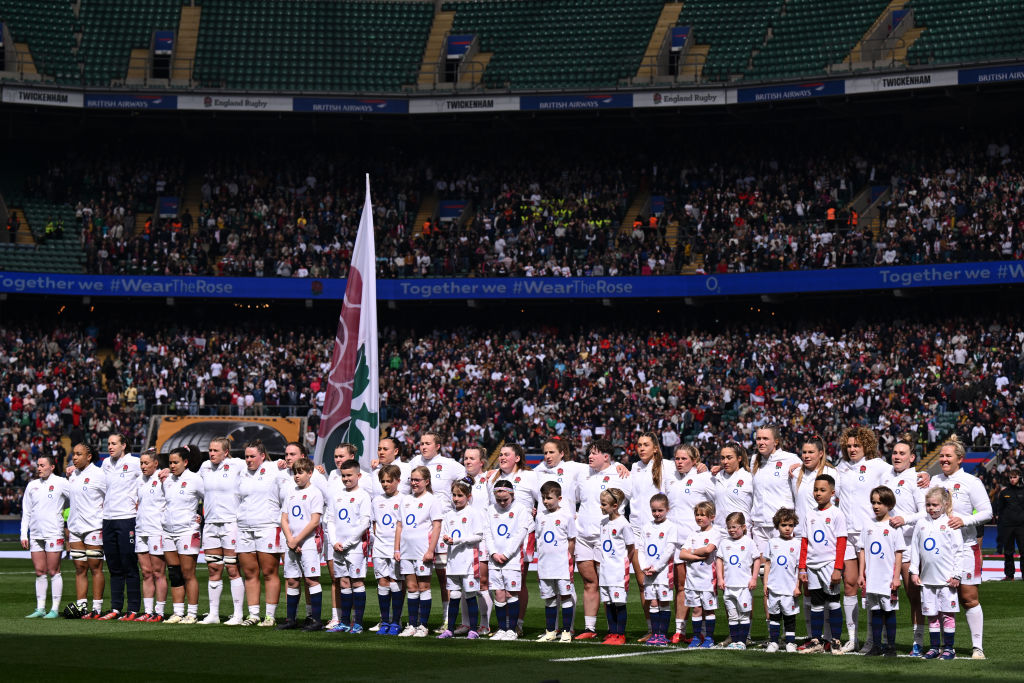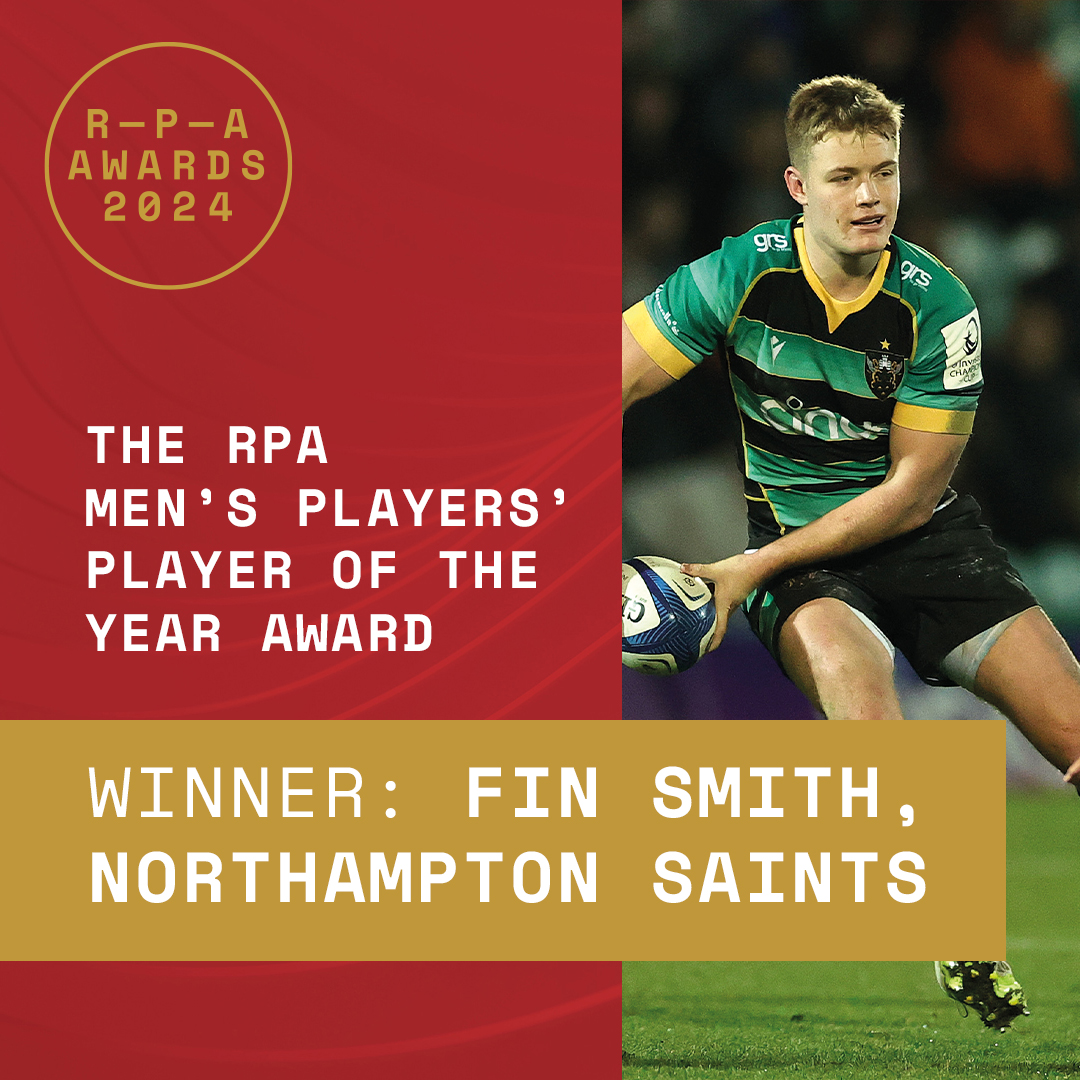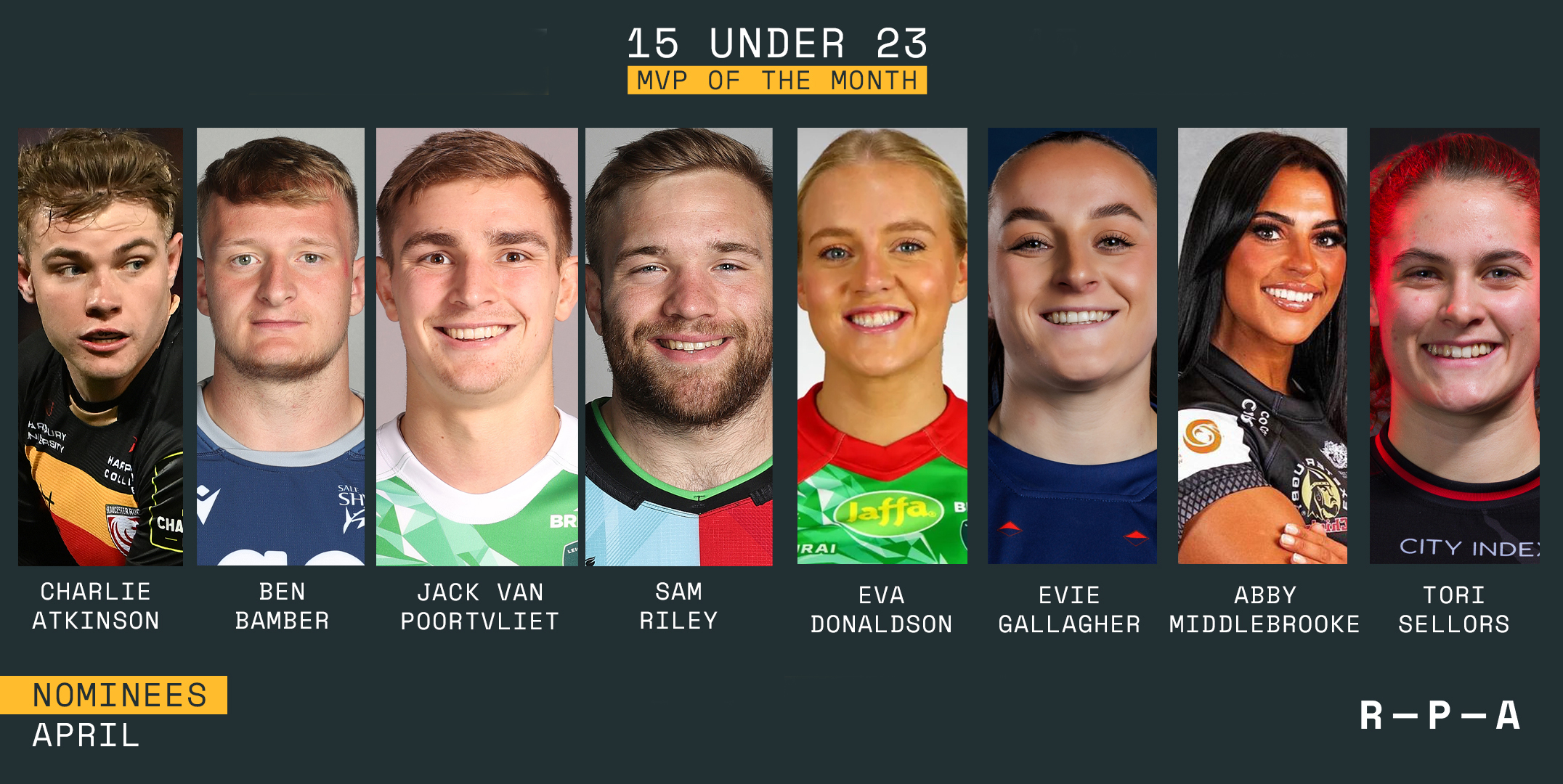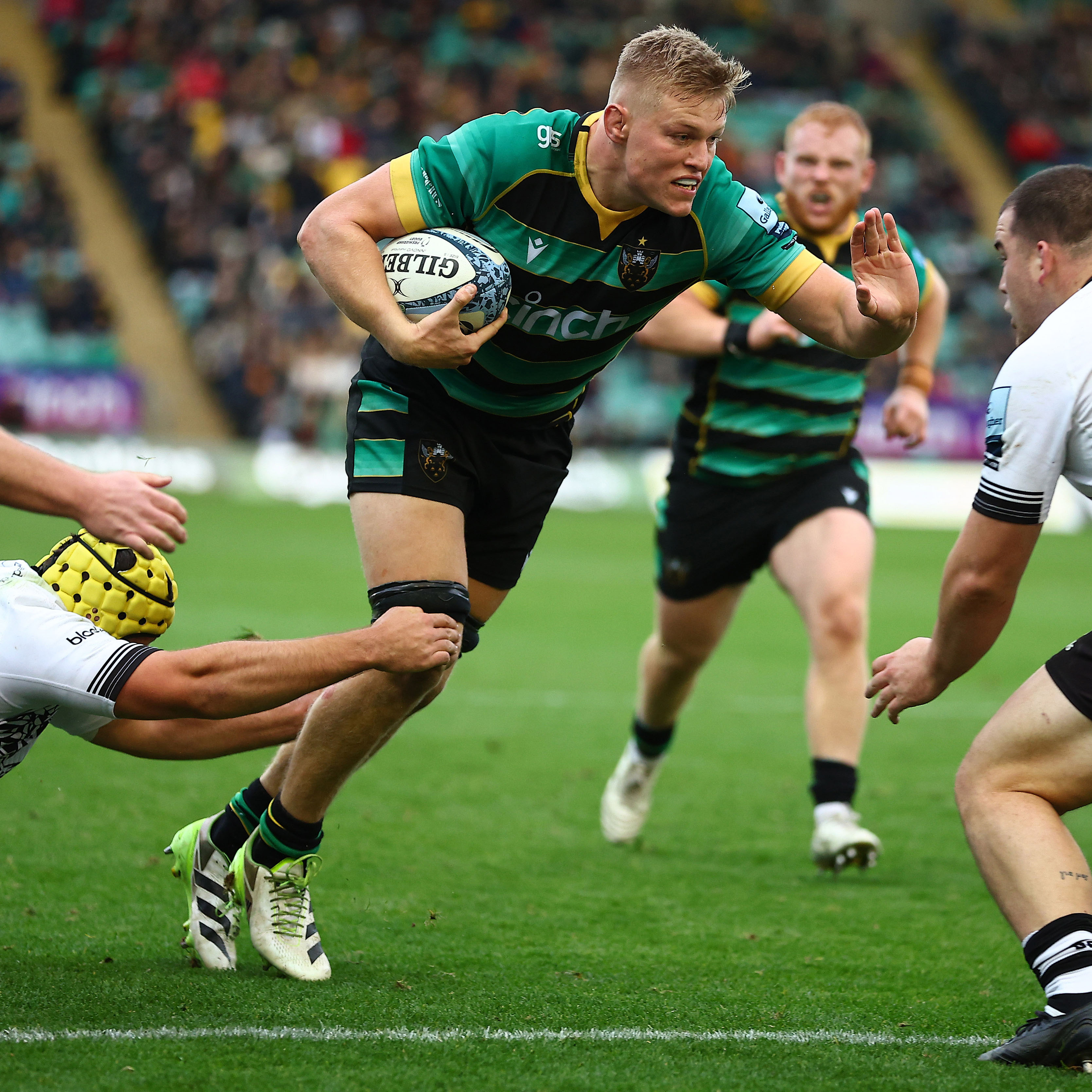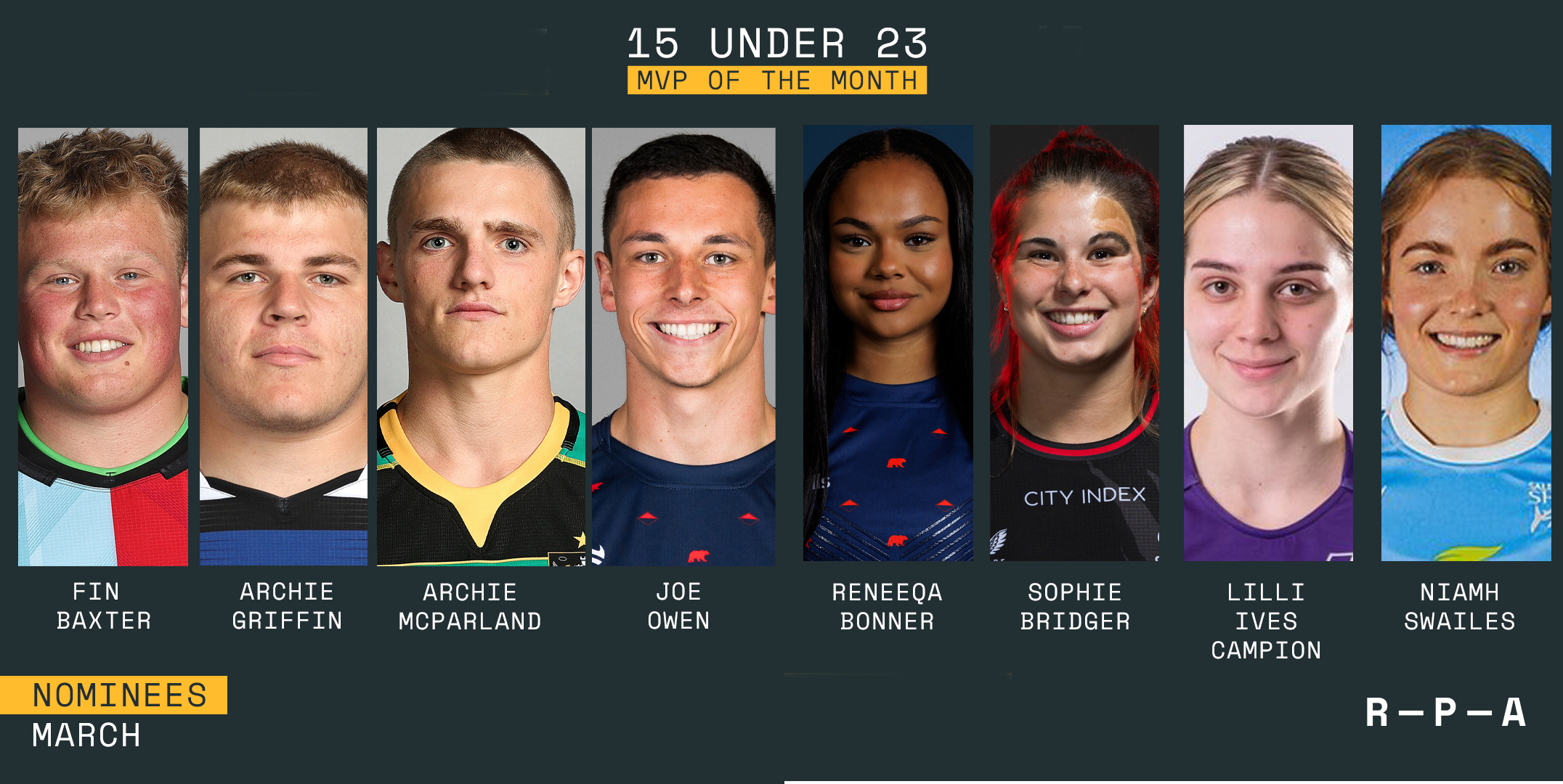Joe Simpson: Life After Rugby
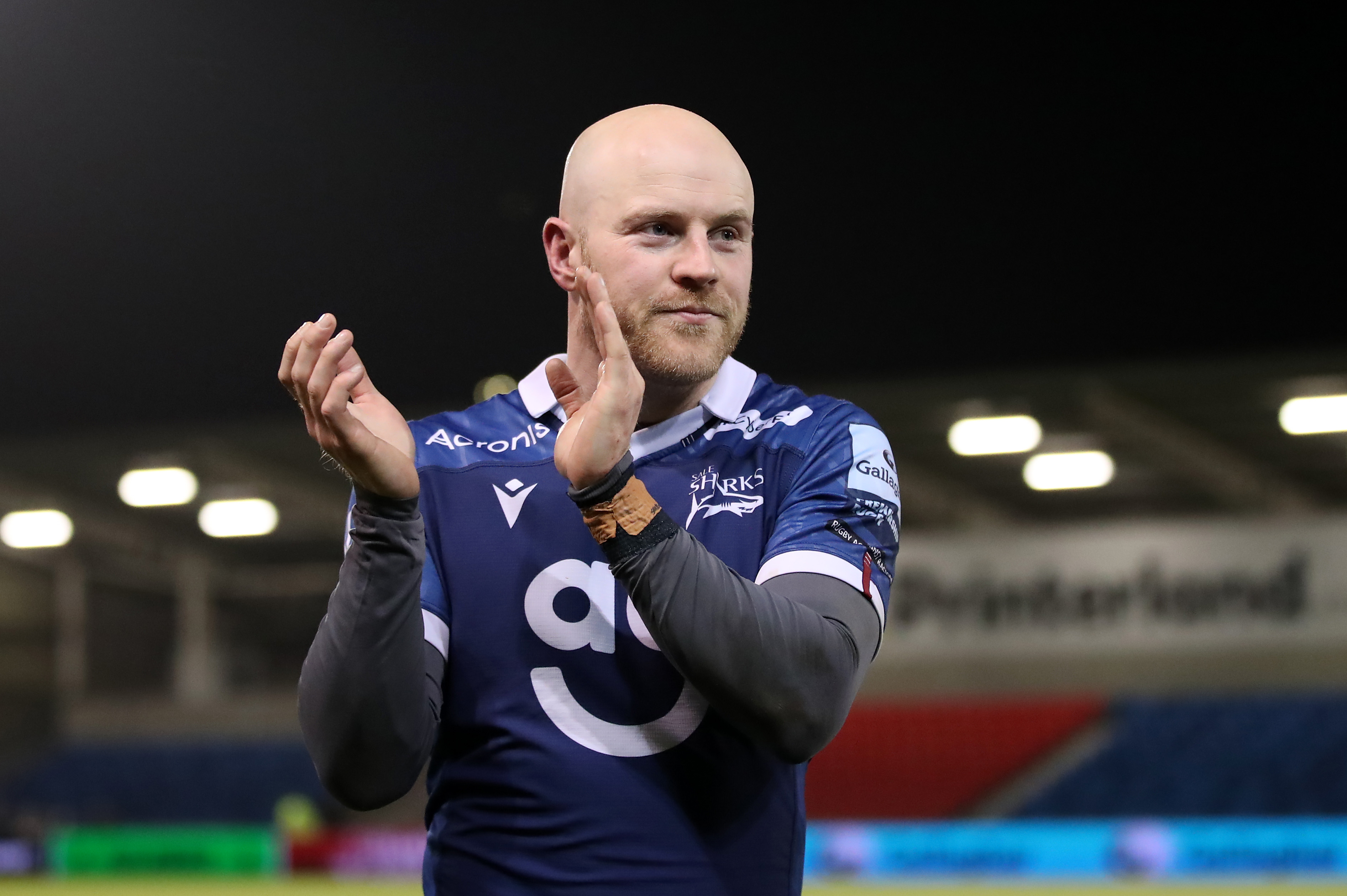
Joe Simpson had an illustrious rugby career. making 221 Premiership Rugby appearances, playing for five Premiership clubs and featuring for his country. He retired from the sport in December 2022, and nine months on, we grabbed a chat with Joe to see how he is getting on and how he's coped with life after rugby...
Tell us about your retirement journey, how did you get to that decision…?
I went to the London School of Economics, so I was always interested in mass economics, so I was always going to go into something in the financial sector. Rugby came along, and I thought I'd give it a go. And then 17 years later I was retiring from rugby with a career that was proud of, which I loved, but rugby was never going to be my everything. My career is something which I'm immensely proud of and I loved that it gave me so much but that was not my ambition at school.
So, I felt like it was the right time for me to call it a day at the end. I engineered my exit mid-season from the game, which I which I was really pleased how it went. I left the game feeling incredibly grateful, my body is still intact, and I was still enjoying the game without too many physical or mental scars.
I don't miss the professional side to rugby at all! I obviously miss the companionship with my friends, but not the actual going out, training and playing. I just wanted a bit of time to reset, recalibrate and spend time with the family because the family often comes second in a player’s rugby career. They get moved about here and everywhere, so I had some time with the family. I had a one-year-old, so I spent six months looking after her, taking her to nursery and back and taking pressure off the family and I used that time as well to search for jobs.
You don't realise how fantastic the rugby network is and the community is until you call upon it and if you just expect that to do the heavy lifting then it doesn't really work like that. You have to do lots of the leg work, but it is a fantastic tool at your disposal. Having played rugby at any real level, that just opens up the whole world of possibilities and a whole world of people that are very happy to a) reach out to you or b) they take your call with you just to see if they can help because they played/watched rugby, they're fond of someone who played rugby so it's amazing the favours that you can ask people and the contacts that people prepared to let you go.
Tell us about your new company, Walker Crips…
They reached out to me. They are an investment manager, stockbroker and spoke to them and they were at the beginning of their journey, their pathway, and so was I. And they were giving me a platform and backing me and giving me a great deal of autonomy to go out there and find out what I wanted to do.
I've always been fairly driven, so I wasn't wanting a handout and a figurehead role, I wanted something I can really get my teeth into. I've always wanted to take my time to find out what I wanted to do rather than plan it while I was in rugby. And therefore, I don't have necessary qualifications to go into a number of professions, which means that I will have to study which I’m doing now.
I'm really enjoying it at the moment. It's a lot to learn but what I didn't probably realise when I was playing rugby is that once you get to a certain age, you stop improving and you just start maintaining. You're not setting PB’s in the gym, you're just trying to hold on to that bit of strength, that bit of fitness. You actually just want to maintain your performance and then after a while you're just trying to stop the rot. You're just trying to hold on and you've got people around you getting better and better, stronger, quicker, faster, more skilful, and your performances are deteriorating and it's strange to have that as a 30-year-old.
You are 30 years old and you're getting worse every year, each season that goes on. you're slightly less effective, and that's actually something I found quite tough. For someone who had always done relatively well at school, at rugby, in relationships with friends and family, everything just was building, and I got to a stage where things were deteriorating, I wasn't that successful on the rugby pitch then I started moving around and stuff like that and that was hard. At 30 years old to feel that you're getting worse every year wasn't that enjoyable.
So, it's just so refreshing to come into a new profession where I am feeling my improvement on a week-to-week basis, and I can see my knowledge improving and my understanding of things and there's so much to learn and it will take me years and years and years to get up to speed. And it's arguably a profession that I can keep improving in and keep being more successful in and hitting bigger and better targets until I start until I call it a day.
How have Walker Crips been to you whilst you’re settling in?
They’ve been extremely accommodating. There's been a huge amount of trust placed in me straight off the bat. It has been a: “You do what you want when you want” and a lot of onuses placed on me to work hard, so I'm the master of my destiny. I'll make whatever I want out of it.
I've been given a fantastic opportunity to learn from some great people to have some time to build myself, educate myself; they're not rushing me, saying “you need to do this by then” it is very much self-motivated, which for some people it works, for me I'm competitive and driven and I want to have a good quality and good standard of life, so I need to earn money I need to do that.
Walker Crips have taken a big punt on me, but I feel like it’s an educated punt and that they kind of understood what they were getting. They were getting an ex professional rugby player, who's very driven and motivated and they've kind of given me the autonomy to generate my own kind of momentum.
It's nice to having that kind of that trust level back, which is ultimately what gets the best out of me I think long-term having someone that trust me believes in me and that's me and it's lovely. It's great working for a company that feels that way.
As a rugby player, you are often told and dictated to by a schedule, what was that transition like from having that, into having the freedom into doing whatever you wanted into your new full-time job?
Yeah, that’s super interesting because I work best under a strict kind of routine, I always have done. I thought I was really going to struggle, and my wife was preparing for it to be a bit of a struggle, but I've found it OK if I'm honest. I've got a little girl who has just turned two and there was no option to mess around. She was needing taking to nursery and stuff like that. So, I had some flow of routine around that.
I also started doing this as soon as I had retired, so I had an immediate purpose, and I couldn't flounce around and so there wasn't really much of a change. And then I just kicked into, right, how many people can I start speaking to; I'm going to try and investigate XYZ and also, I needed a bit of down time I've been playing for 17 years, I need some time to procrastinate and not do much.
I set myself unrealistic goals on when I wanted to get a job and stuff like that and I missed all those goals by country mile, I thought, you know, I won't research anything, but I'll just try and find out and then apply for jobs and hopefully I'll get a job by February or something like that. And I didn't end up getting a job until late June.
I can definitely see how, particularly if you've retired early if that's all you've known and that's who you are “So and so the rugby player” then it's really tough when then that gets taken away from you, particularly if that gets taken away from you prematurely.
Do you have any tips to academy players breaking through about starting to think about their future after rugby, and the transition into their next career?
If I had my time again, would I have done the same thing now, definitely not, I would be making sure that I have some rough idea of backup plans. I've seen some fantastic rugby players who a couple of years ago, would have got great contracts being absolutely bombed out of their game with nothing and now having to worry about where their mortgage payments are going to come from, and that's horrific.
I would be proactive. Look, being proactive is so key. The amount of people that are out there that would love to help you even if you're not a household name. If you have some interest in any kind of sector or industry, and you reach out to one of the club sponsors in that industry, they will love it. It sets you apart immediately. It shows that you are proactive and that's exactly the type of person that you want to employ, it doesn't matter how clever or smart you are. If you're not proactive and you don't go get things then, you don't get them.
If you reach out to people, then you'll get picked ahead of people who don’t. So, speak to as many people as you can. I was told this and I thought “Yeah, sure” when I was growing up. Honestly, just the contacts that you make through rugby, are crucial. One of the blokes that spoke to me the most throughout my transition was a guy randomly met at a RPA networking event like seven years ago. I got his business card. He messaged me saying “Oh, I have just seen that you have retired, let me know if you want any help”. I spoke to him, he passed me on to a few different guys, who were all super, super helpful, some really tip-top high end professionals that gave me a great view into lots of the industries I was interested in and has ultimately been one of the main factors for me getting a job just because I went to a random networking event and he actually took the initiative to message me when I retired. So, just getting out there and being active, and then things will happen.
And finally, how did the help of the RPA and any Player Development Managers you have had in in your career help you get to where you are now?
Look, I've been lucky enough that I had a rough idea of what I wanted to do, and I've had some. Player Development Managers over my years, but I was in regular contact with Hamish Pratt at Sale, who was who was fantastic. He was fantastic with me and called me, offering to help me with my CV just things that you don't think about in kind of too much detail. Hamish was fantastic for me, I really enjoyed speaking to him, and he was proactive and always thinking about me and kind of checking in on me and honestly, that just makes a world of difference.


